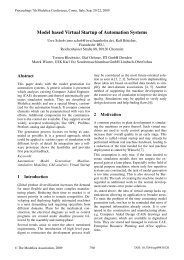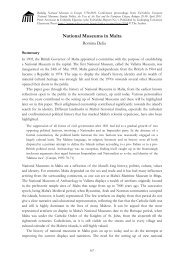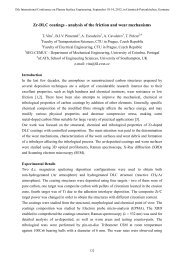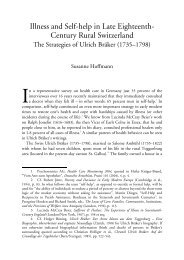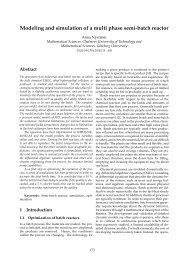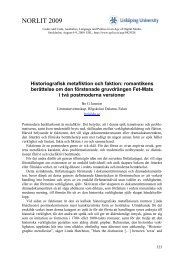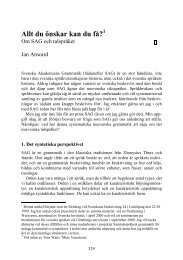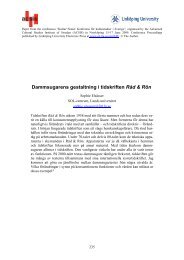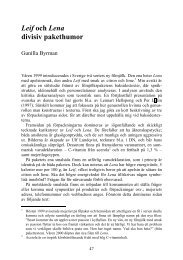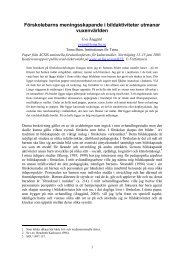Full article (pdf)
Full article (pdf)
Full article (pdf)
Create successful ePaper yourself
Turn your PDF publications into a flip-book with our unique Google optimized e-Paper software.
A healthy body in old age<br />
and was widowed last year: Mrs Stein cannot cook for herself and besides,<br />
has lost interest in food, she says. During the home visit, the health advisor<br />
engages with Mrs Stein in uncovering her eating patterns and preferences.<br />
It turns out that Mrs Stein actually still loves food, though not the food she<br />
was asked to choose from a caterer of readymade meals when she was<br />
diagnosed with being underweight six months ago. Mrs Stein’s favourite<br />
food turns out to be seafood and the health advisor arranges with Mrs<br />
Stein, her daughter and her home help that shopping and making seafood<br />
sandwiches to keep wrapped up in the fridge be put into a weekly<br />
schedule. This shared process of caring for Mrs Stein’s weight problem<br />
solves a serious health problem through inclusion of all practicalities,<br />
preferences and network available and not only nutritional and medical<br />
aspects of Mrs Stein’s underweight.<br />
Summing up, this way of negotiating health issues while including<br />
resources, relations and preferences of the citizen is an established practice<br />
among the health advisors in our study. They seem to take on a more<br />
active role, not only informing of and co-ordinating medical services,<br />
but tracking care solutions that are attuned with the old citizens’ individual<br />
daily lives. But of course, the negotiations sometimes seemed<br />
asymmetrical: the final example of this apparent discrepancy between an<br />
institutionalised view and an older person’s view on individual autonomy<br />
is that of the aforementioned Mrs Stein. She requested help getting washed<br />
and dressed in the mornings, but the health advisor was reluctant; the<br />
goal of recovery and regaining autonomy is being able to do everyday<br />
chores on one’s own. Mrs Stein complained that, when she was in the<br />
hospital with her broken hip, the staff was already urging her to wash and<br />
dress herself even though this made her so tired that she would have<br />
to take a nap afterwards. Back in Mrs Stein’s flat, this pattern continued<br />
with the home visitor, who repeated the suggestion that she wash and<br />
dress on her own. But at the same time, Mrs Stein was urged to participate<br />
in the various social arrangements and training offered at the sheltered<br />
housing where she lives. She would like to get out and meet people,<br />
but she is always too tired for it. This topic was discussed back and<br />
forth between Mrs Stein and the health advisor. The health advisor<br />
moderated her point by saying: ‘‘Because it’s like this: if you get dressed<br />
and then it’s like, Wooh, now I’m tired for two hours, then it’s something you<br />
17



